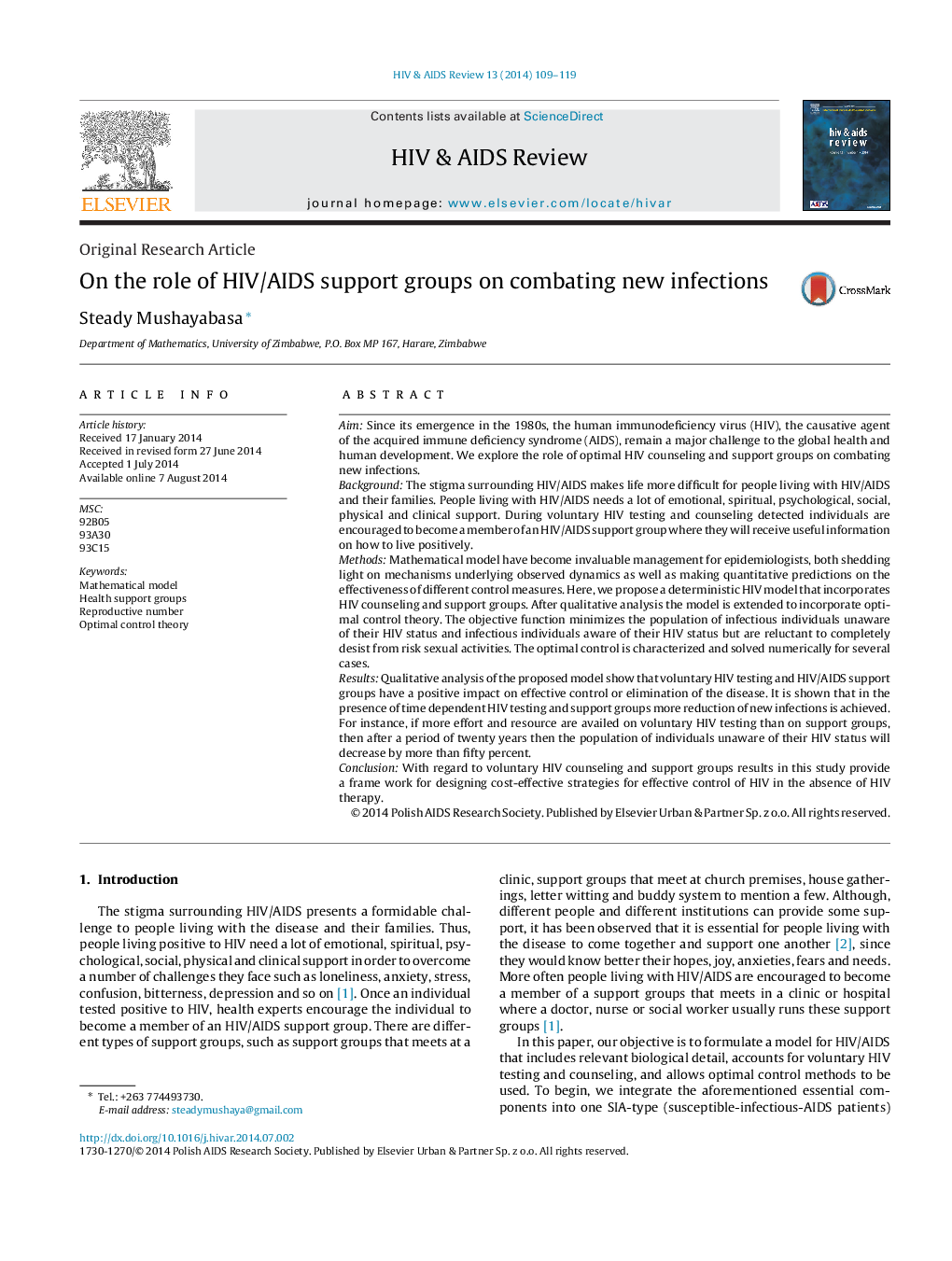| Article ID | Journal | Published Year | Pages | File Type |
|---|---|---|---|---|
| 3332409 | HIV & AIDS Review | 2014 | 11 Pages |
AimSince its emergence in the 1980s, the human immunodeficiency virus (HIV), the causative agent of the acquired immune deficiency syndrome (AIDS), remain a major challenge to the global health and human development. We explore the role of optimal HIV counseling and support groups on combating new infections.BackgroundThe stigma surrounding HIV/AIDS makes life more difficult for people living with HIV/AIDS and their families. People living with HIV/AIDS needs a lot of emotional, spiritual, psychological, social, physical and clinical support. During voluntary HIV testing and counseling detected individuals are encouraged to become a member of an HIV/AIDS support group where they will receive useful information on how to live positively.MethodsMathematical model have become invaluable management for epidemiologists, both shedding light on mechanisms underlying observed dynamics as well as making quantitative predictions on the effectiveness of different control measures. Here, we propose a deterministic HIV model that incorporates HIV counseling and support groups. After qualitative analysis the model is extended to incorporate optimal control theory. The objective function minimizes the population of infectious individuals unaware of their HIV status and infectious individuals aware of their HIV status but are reluctant to completely desist from risk sexual activities. The optimal control is characterized and solved numerically for several cases.ResultsQualitative analysis of the proposed model show that voluntary HIV testing and HIV/AIDS support groups have a positive impact on effective control or elimination of the disease. It is shown that in the presence of time dependent HIV testing and support groups more reduction of new infections is achieved. For instance, if more effort and resource are availed on voluntary HIV testing than on support groups, then after a period of twenty years then the population of individuals unaware of their HIV status will decrease by more than fifty percent.ConclusionWith regard to voluntary HIV counseling and support groups results in this study provide a frame work for designing cost-effective strategies for effective control of HIV in the absence of HIV therapy.
